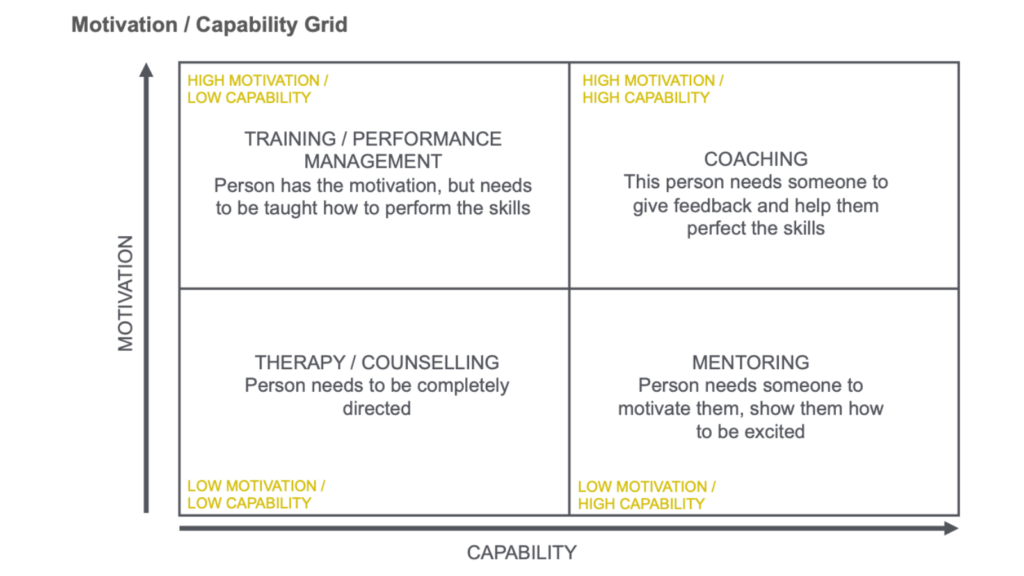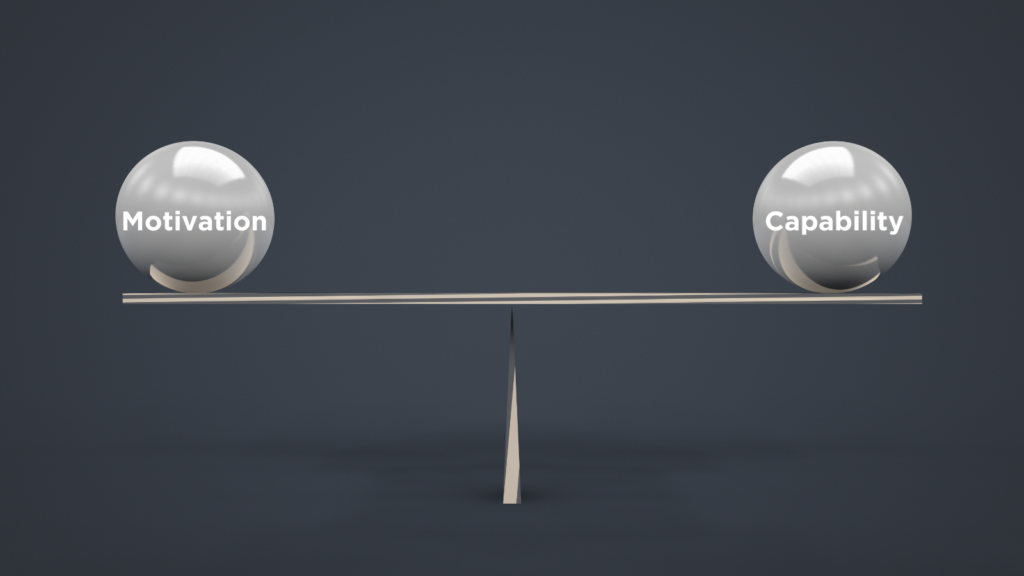I learned about the motivation / capability grid while training to be an executive coach. I also use this when meeting potential or new clients to explain the difference between coaching and other ways to develop.
Oftentimes we look at development in a broad sense and not based on where we are in our growth and what we need to move forward.
Sometimes development is designed for us and if you’re an employee you will probably have been included in programmes that are good but that are not always 100 percent relevant for where you are. We can also get caught up in signing up for some version of development based on what everyone else is doing.

Here’s the detail from the grid – which will help you to better understand what’s right for you.
Coaching (High motivation / High capability):
“Partnering with clients in a thought-provoking and creative process that inspires them to maximise their personal and professional potential” (ICF, 2018). Coaching allows for the space and exploration of ideas to find the right strategy to take action, get unstuck and move forward.
Mentoring (Low motivation / High capability):
Is most often defined as a professional relationship in which an experienced person (the mentor) assists another (the mentee) in developing specific skills and knowledge that will enhance the less- experienced person’s professional and personal growth.
Training / Performance Management (High motivation / Low capability)
The activity and set of processes that aim to maintain and improve employee performance in line with an organisation’s objectives. It’s strategic as well as operational, as its aim is to ensure that employees contribute positively to business objectives.
Therapy/Counselling (Low motivation / Low capability)
The provision of professional assistance and guidance in resolving personal or psychological problems.
I hope this helps.
*First published on LinkedIn




